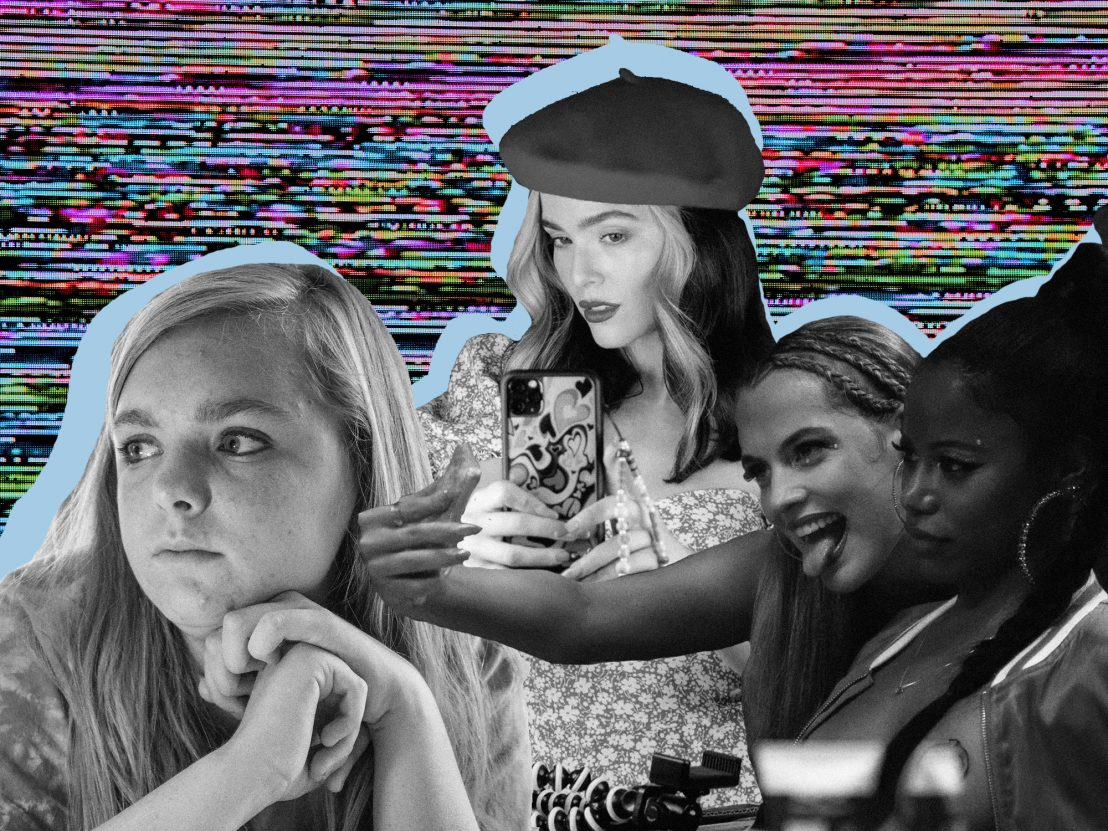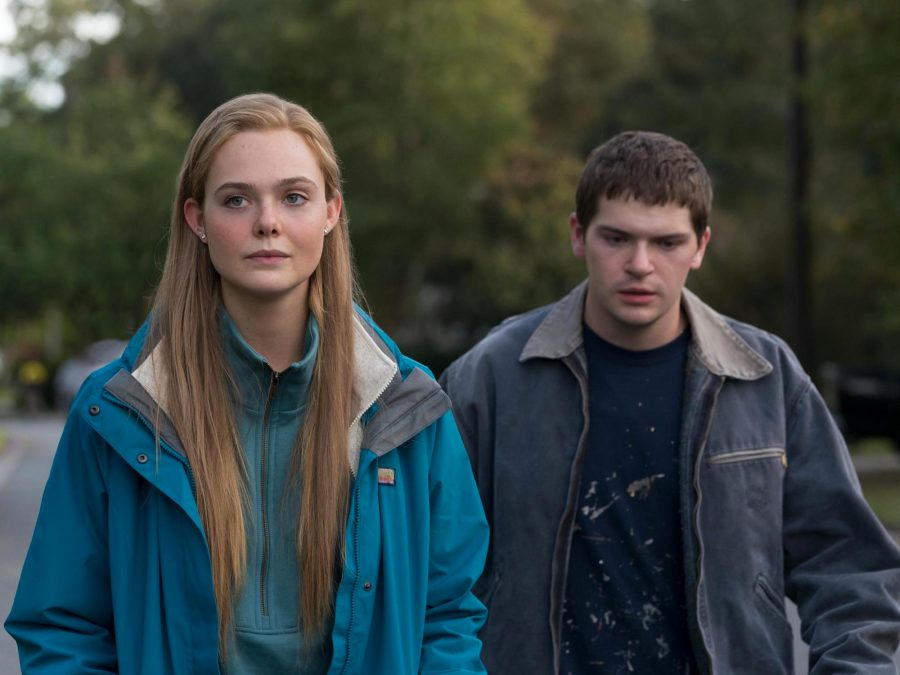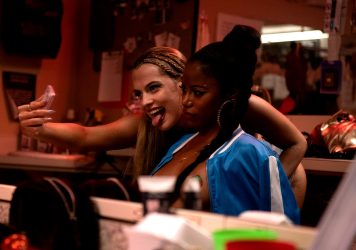
For most of us, the omnipresence of social media is a fundamental part of daily life. We often debate whether its ubiquity is a net good or bad, but generalizations become difficult when there are as many ways to interact with social media as there are people with iPhones.
Film has long proven to be a medium uniquely adept at capturing the nuances of lived experience. Over the past decade, many filmmakers have leaned into the challenges of portraying the range of ways people are affected by contemporary issues like climate change, state violence and sexual politics, without relying on buzzwords and generalizations. So why is it that so few films deal explicitly with the subject of social media – and most of the ones that do feel like cheesy PSAs from a high health class?
The issue begins in the architecture of storytelling. You only have to take one screenwriting course (or read one screenwriting how-to article online) to encounter a supposedly crucial note: raise the stakes. Boredom is the ultimate crime in a film, and pushing the mechanics of a story to their highest logical extremes is storytelling manna to keep the audience invested and on the edge of their seats. The problem is, when the theme is social media, this means pushing the story into areas of the internet that the average user never experiences.
In Quinn Shepard’s 2022 film Not Okay, Danni Sanders – a young woman desperate to be liked – constructs an elaborate web of lies to convince the world she was present during a terrorist attack in France, when she was actually safe in her New York apartment. While Sanders commits fraud on a massive scale in pursuit of social clout at the expense of her friends and family, she’s actually pretty tame for the anti-hero of a social media film.
Ingrid Thorburn, of Matt Spicer’s Ingrid Goes West, takes it further as a young woman obsessed with the perfect life of her favorite social media influencer. Ingrid, played with terrifying, unhinged brilliance by Aubrey Plaza, is driven to stalking, blackmail and violence when the fake life she longs for slips out of reach.
When the range of social media experiences on film runs from deceptive influencers to mentally ill murderers, it fails to engage with the more common – and I would argue more interesting – experience of the average user. Audience members are able to distance themselves from the worst parts of the internet, instead of considering uncomfortable questions about their own behavior online. Even when these films hedge moderate critiques at the toxic “engagement equals value” creed at the core of social media they end up placing more blame at the feet of half-crazed millennial and Gen Z women rather than the business ideology and algorithms of Silicon Valley that are truly at fault.
To move away from sensationalism and didactics, filmmakers must focus on the online experience of the everyday user. Those who are mostly posting into the void, occasionally brushing against the extremes of online life but not living in them. Bo Burnham’s 2018 film Eighth Grade sets a precedent for this way forward in films about social media. The film follows Kayla, a 13-year-old doing her best to navigate – or maybe just survive – her last searingly awkward week of middle school. Set apart by its heartfelt compassion for its protagonist, Eighth Grade illustrates just how profound the anxieties and humiliations of constructing one’s identity – both face to face and online – can be for the average internet user.

As more films necessitate major plot points and information to be shared through online communication, filmmakers have had to get creative in developing a practical visual language to portray the experience of using social media. Scrolling through Instagram or Twitter easily runs the emotional gauntlet from elation to outrage and yet there’s few things duller onscreen than an actor sitting dead-eyed and hunched over a phone.
Throughout the twenty-tens, the most popular strategy for showing texting on screen was for text message bubbles to appear in the corner of the screen for audiences to read. Although this style is inoffensive enough in rom-coms and teen flicks it can become distracting in movies with a serious or grittily realistic tone. Another solution is to forgo the digital aspect altogether and represent online communication in an IRL space. For example in the recent Hulu series The Girl from Plainville extensive online conversations that are crucial to character development are represented with actors interacting in a semi-imagined physical space and speaking their text messages as dialogue.
However, air lifting text conversations into the physical world fails to explore the interesting and important ways that online communication is fundamentally different from talking in person. A more meaningful portrayal must grapple with social media’s role as a mediator between the digital and analog world while existing in a space between them all its own.
The 2021 film Zola successfully avoids the common pitfalls of social media films by thoughtfully reimagining their tired visual cliches. Based on the viral twitter thread posted by Detroit waitress, Aziah “Zola” King and directed by Janizca Bravo, the film emphasizes the disparity between posed photos and the unpredictability of the real world with a clever use of angles and camera movement. She also takes full advantage of the cinematic soundscape, incorporating the dings and bells of phone notifications into a graceful and emotive soundtrack. Zola is invariably creative about weaving the presence of social media into the character’s real world in a way that feels engaging and authentic to the nuances of their lived experience.
Furthermore, most films exploring themes about social media remain firmly centered on young white women. This focus speaks to perceived notions of who the victims and victors of the web are; such notions are not only simplistic but stale. The more we learn about the internet and its long term effects, the more difficult it is to make sweeping generalizations. It is a crucial moment for artists to take stock and engage with interest and specificity in a multitude of online experiences. Zola is an outlier here as well in that the film attempts to engage with how the pleasures and pressures of life online vary based on race, gender, class and countless other factors.
Some of the failure to successfully portray social media on screen reflects filmmakers’ reluctance to be self-critical. As much as filmmakers may want to distance cinema from its cringy cousin – online content – it’s impossible to deny that the two are linked. Sexy stars, memorable music, alluring lighting, a healthy dash of behind the scenes gossip – maybe it’s just too close to home. Salvation in part must lie in thoughtfulness about shared sins. It’s easy to critique social media’s constant bid and endless tricks to attract and hold audience attention, but harder to admit that they’re playing from Hollywood’s rulebook.
Published 8 Mar 2023

Taylour Paige and Riley Keough star in a wild Floridian road trip movie based on an iconic Twitter thread.

By Matthew Eng
Aubrey Plaza plays a very modern kind of antiheroine in Matt Spicer’s darkly comic social media satire.